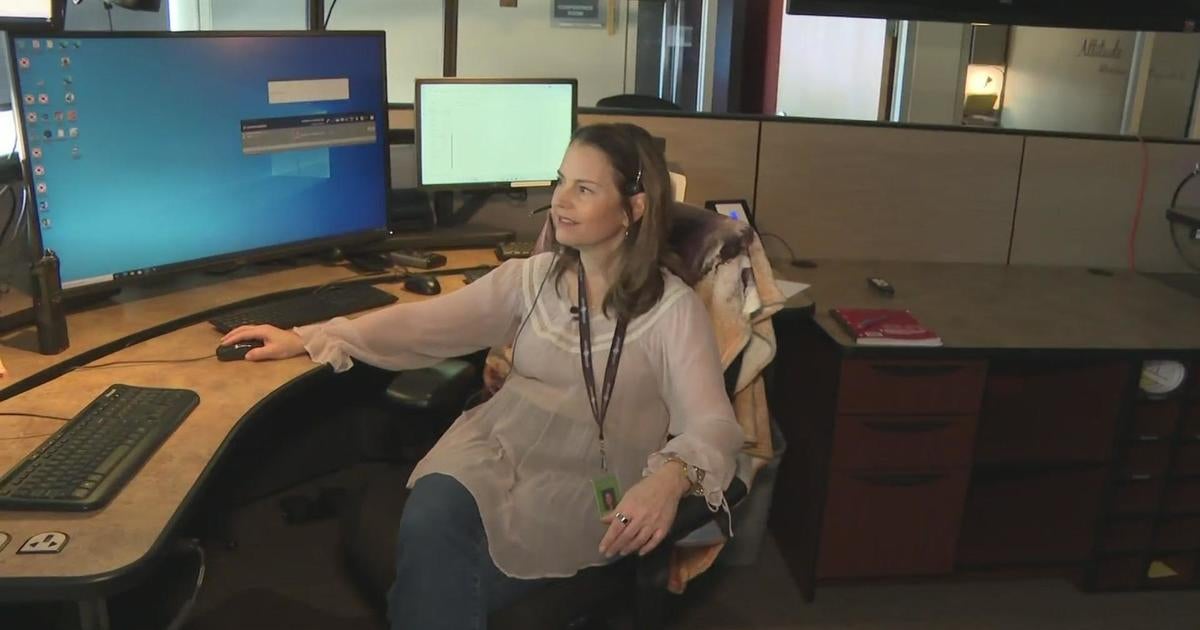When people are going through a mental health crisis, often times they don’t know who to reach out to, but some of them might call 911. Now, the Arapahoe County Sheriff’s Office has a behavioral mental health specialist working in the dispatch center, and her job is taking phone calls from people going through a mental health emergency.
Catherine Kaufman’s voice is often heard over the phone, but she is rarely seen by members of the Colorado community.
“For people to know that they can call and get emotional support is really huge because that’s not something people think of and people are not expecting me to be here,” Kauffman said.
CBS
Kaufman took on her new role as the sheriff’s office’s behavioral mental health specialist in October 2024, a one-of-a-kind position across the state.
“It’s very unique,” Kauffman said. “This is the first position of its kind in the state of Colorado.”
Just across the room, 911 dispatchers first receive the call and transfer the call to Kaufman as needed. Calls range anywhere from an individual going through a mental health crisis, a parent with a child who is having a meltdown or a dementia patient, among other emergency situations.
“Dispatchers first ask their questions and get a lay of the land,” Kauffman said. “If they think that it’s not really a highly acute situation, meaning someone is, say, actively suicidal or in danger of hurting themselves or others or if a crime is being committed, in those instances, they don’t come to me. But if it’s sort of a lower-level emergency, I can talk to the caller right then and there, right from their 911.”
Kaufman asks many different questions and determines the person’s needs, whether its crisis intervention, information on where to find resources, or just be a listening ear.
“People are very open. They do tell me their deepest, darkest secrets, and I listen non-judgmentally,” Kaufman said. “Sometimes, they just want someone to listen to them talk.”
ACSO created the role to expand its mental health services to members of the community because the number of mental health calls have been steadily increasing in recent years. Last year, the sheriff’s office co-responders went to nearly 2,600 calls. In 2023, they responded to 2,400 calls. Co-responders are sent to calls with a deputy when someone is experiencing a mental health crisis.
Many mental health calls can also be be resolved quicker by connecting callers to Kaufman. She de-escalates situations and uses fewer resources, or stays on the phone until deputies arrive.
“That takes their resources. It takes them away from other more urgent calls that they may have, and it also saves time because I can be there right away,” Kaufman said.
Kaufman stays on the line with people for as long as they need it. She also follows up with people she talks to, with a phone call later in the day or later in the week.
Kaufman has a career of working in mental health, working directly with patients at a local hospital. She also was a call taker on America’s Most Wanted, working very closely with FBI Agents and taking tips from the public.
On a person’s worst day, she’s the one working in the shadows to make sure they are safe.
“I look at every individual person that calls me, and I can just hear the struggle and their pain in their voice,” Kaufman said. “It just makes me feel really good when I can make someone feel better than they did when they called in.

